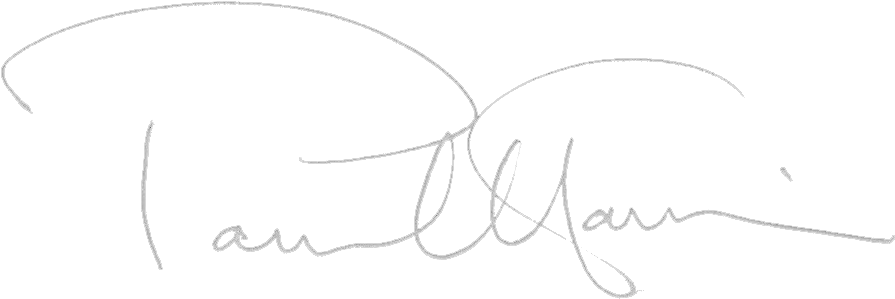In the Summer of 2000 I had the great pleasure of meeting James Gillespie, editor of The Clarinet Journal, during the International Clarinet Association (ICA) convention in Oklahoma. James asked me if I would like to contribute a regular column – an invitation that I found both humbling and daunting! The following ‘Letter from the UK’ was first published in December 2009 in The Clarinet Journal, the official publication of the ICA.
I’ve recently been watching a repeat, on television, of the highly acclaimed 1976 BBC production of I Claudius. The imaginative and chilling theme music was by the Newcastle-born British composer Wilfred Josephs. It’s twelve years since Josephs died and his significant body of music for the clarinet still remains relatively unexplored territory to most players. So here’s a short introduction to some of these works which I hope will inspire you to have a closer look. You certainly won’t be disappointed.
Though Josephs was a keen musician as a boy his parents had no intention of allowing him to follow such a dubious profession. Consequently he trained to be a dentist, a career he pursued, probably somewhat half-heartedly, for a few years. But between drillings he was still quietly composing and after winning the occasional international composition competition was finally able to give up filling teeth and devote his life to music. He studied with a number of distinguished composers including Max Deutsch (a pupil of Schoenberg); but his style is rooted in a very accessible tonality and he constantly reveals, like Malcolm Arnold, a fine gift for writing lovely melodies.
His first major work for the clarinet was a concerto written for Keith Pearson (a pupil of John Davies) in 1975. Lasting just under half and hour and accompanied by quite a sizable orchestra it’s a large-scale work. Ten years later came a work equal in proportion to the concerto and one that should be in every clarinet players’ repertoire – a wonderfully atmospheric Quintet. Following in the tradition of the Mozart and Brahms it is for A clarinet and Josephs writes for the instrument with great skill and sensitivity. It was commissioned by and dedicated to Angela Malsbury (whose playing Josephs much admired). She gave the first performance with the Medici Quartet in August 1985. It has (perhaps uniquely) two first movements! The music is harmonically lush and full of gorgeous melody with a hint of rolling hills – but the landscape is never predictable and Josephs is continually taking the music around unexpected corners. The following scherzo is witty and charming and places considerable demands on the soloist (but they’re well worth the effort!) The slow movement is a magical, languid and heartfelt nocturne lasting nearly ten minutes, the occasional moments of disquiet preventing audiences from slipping into a dream-like semi-consciousness. The final movement is gently energetic and the work ends in a poignantly hazy mist reflecting the closing moments of the Brahms Quintet. Altogether a highly engaging work. Joseph also wrote Twelve letters of a Moral Alphabet (for speaker, clarinet, string trio and piano) a setting of words by Hilaire Belloc also for Angela Malsbury who has recorded it on the Unicorn label.
Again like Brahms, Josephs wrote two clarinet sonatas (in 1988) back to back: the ink was hardly dry on the first when he began the second. Both were written for Martin Powell and, like Reger’s Sonata in F sharp minor, use the A clarinet. The opening movement of the first Sonata (Op 148) is also Brahmsian in its soaring lyricism and occasional rhythmic ambiguity; there are also moments of ferocious energy. The meltingly tender slow movement is a jewel and the scherzo full of high jinks. The expansive melody that opens the final movement is simple and direct though the composer continually demands considerable reserves of technical virtuosity from the performer. The second Sonata (Op 149) begins in rather more dark and dramatic vein than anything we have heard in the first and its three movements (similar in general conception to the Brahms E flat) are more structurally concise compared to its partner. Both works are challenging to play but would delight any audience. The two Sonatas and the Quintet are beautifully recorded by Linda Merrick on the Metier label – do get to know them.
And clarinettists have still more to enjoy. There is an Octet that sits alongside Schuberts’; a delightful Old English Suite for the colourful combination of E flat clarinet, 2 B flat clarinets, basset horn and 2 bass clarinets and a Serenade to the Moon for 3 clarinets and bass clarinet. All in all quite a collection.
About the same time that I Claudius was first screened, children were enjoying a thoroughly charming new series centred around the fantastic adventures of a certain Mr Benn. I loved it - especially the music which, if the credits were to be believed, was apparently written by one Don Warren. But they weren’t to be believed. After some careful research I finally discovered that it was written by the well-known saxophone player Duncan Lamont, who wished to keep his duel life as a jazz artist and composer of children’s TV signature tunes separate! What particularly drew me to the music was the delicious main theme which was beautifully written and scored for bass clarinet and doubled on xylophone accompanied by a small ensemble. Duncan told me he’d originally scored the tune for trumpet, but the trumpet player failed to make the recording session and as there was a spare bass clarinet player about, he instantly re-scored it. Anyway, to cut a long story short I have just arranged and published (Queen’s Temple Publications, QT 118) ten pieces (including the superb title music) from the series for B flat clarinet and piano. They are absolutely delectable.
© Paul Harris 2010 Reprinted by kind permission of the ICA

